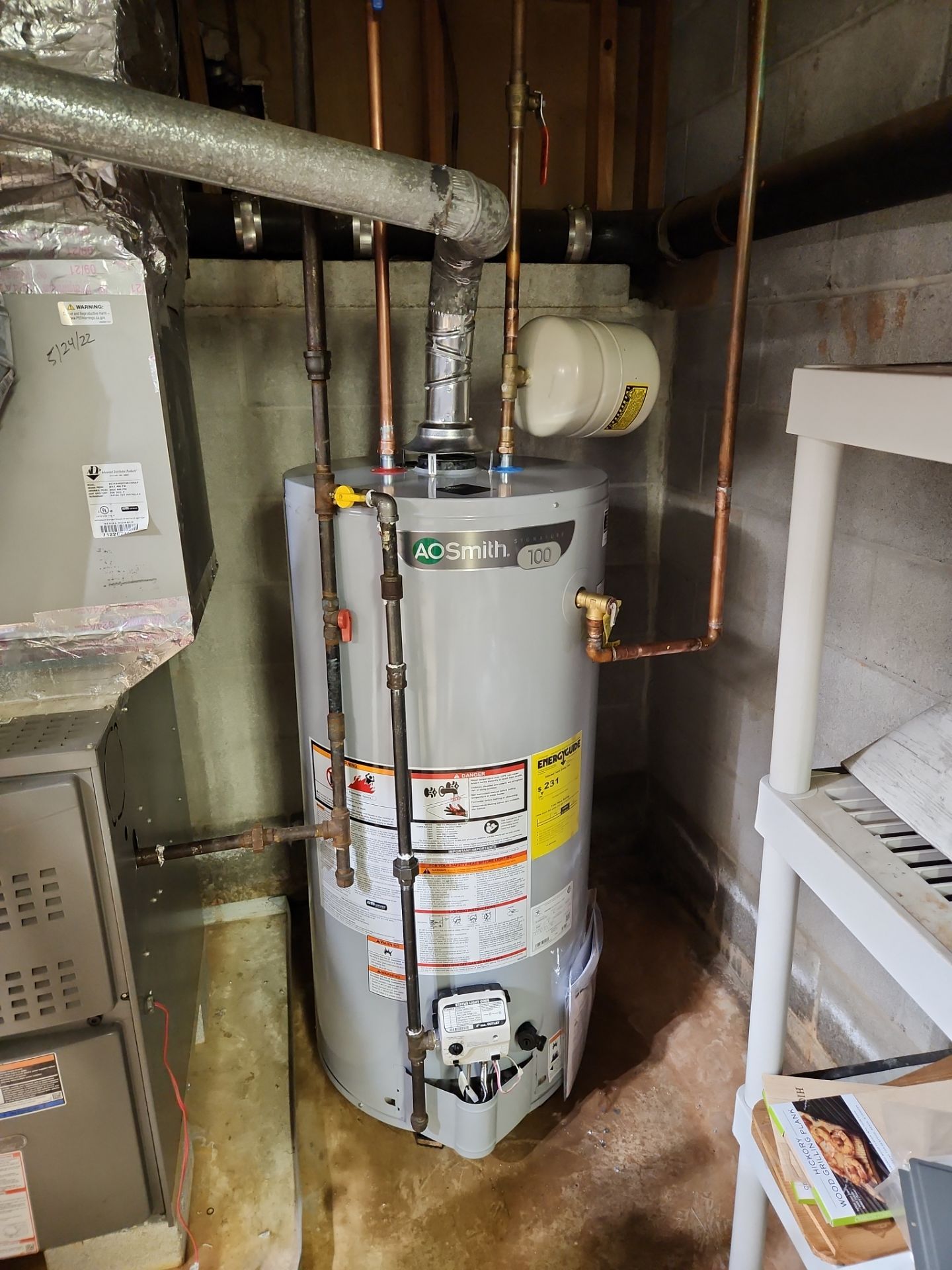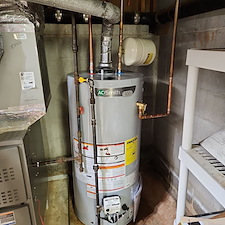How Long Do Water Heaters Last? Marietta, GA

How Long Do Water Heaters Last? Marietta, GA
- Traditional tank water heaters usually last around 10-15 years. After this time, they may start to show signs of wear and tear.
- Tankless water heaters tend to last longer, often around 15-20 years.
Potential Damage from an Old Water Heater
- Rust and Corrosion
Over time, the metal components of a water heater can rust, especially if it has a tank. Corrosion inside the tank can cause leaks, which may lead to water damage in your home. If the water heater is old, the anode rod (which helps prevent rust) may have worn out, increasing the risk of rust formation.
You may also notice rusty or discolored water coming out of your taps, which is a sign that the tank is rusting inside.
- Leaks
As water heaters age, small leaks can develop around the tank, valves, or connections. If not caught early, these leaks can turn into bigger problems, potentially flooding the area around the heater.
If the tank itself begins to crack, it can cause major water damage to your home. This is especially dangerous if you have your water heater in an attic or basement.
- Reduced Efficiency
Over time, sediment can build up at the bottom of the tank, especially in areas with hard water. This sediment buildup reduces the efficiency of the heater, forcing it to work harder to heat the water, which can increase your utility bills. It can also cause the heater to fail prematurely.
A less efficient water heater may have trouble keeping up with your household's hot water demands, leading to cold showers or insufficient hot water.
- Overheating
An aging water heater may experience issues with the thermostat or heating elements, causing it to overheat the water. This can lead to scalding hot water, which is a safety hazard.
- Unusual Noises
As a water heater gets older, you may start to hear rumbling or popping sounds. These sounds are typically caused by the buildup of sediment, which traps water under the particles. When the water heats up, it can cause the sediment to bubble and move, creating these noises. If ignored, this can lead to internal damage or even failure of the heating elements.
- Risk of Tank Failure
In the worst-case scenario, an old water heater can experience a tank rupture. When this happens, water can flood the area where the heater is located. A burst tank can cause significant property damage.
What Can You Do to Prevent Damage?
- Consider Replacement: If your water heater is nearing the 10-15 year mark and you're experiencing issues like reduced hot water, strange noises, or leaks, it might be time to replace it before it fails completely.
- Upgrade to a More Efficient Model: If you're replacing an old water heater, consider upgrading to a more energy-efficient model, like a tankless water heater, which can save you money in the long run.
We can assist you in choosing the best type of water heater that meets your needs and lifestyle.
Installation
- 40 Gallon Gas Water Heater: A water heater with a 40-gallon capacity powered by gas. It heats water for residential use, such as for showers, faucets, and appliances.
- Automatic Flue Damper: A mechanism that automatically opens and closes the flue to regulate airflow, helping to prevent heat loss and improve energy efficiency.
- Protective Anode Rod: A rod made of magnesium or aluminum that prevents corrosion inside the tank by attracting corrosive elements, extending the lifespan of the water heater.
- Ceramic Fused Tank: The interior of the water heater tank is coated with a ceramic material, offering extra protection against rust and corrosion.
- Expansion Tank: A small tank installed to absorb excess water pressure from thermal expansion (as water heats up and expands), helping to protect the plumbing system.
- New Gas Cutoff: A newly installed gas cutoff valve, allowing for the safe and easy shut-off of the gas supply to the water heater when needed.
